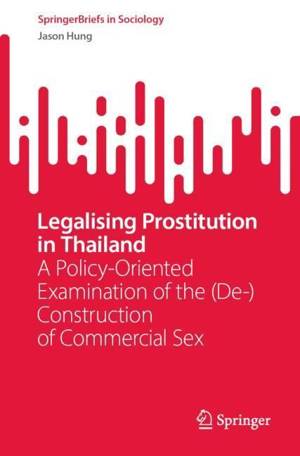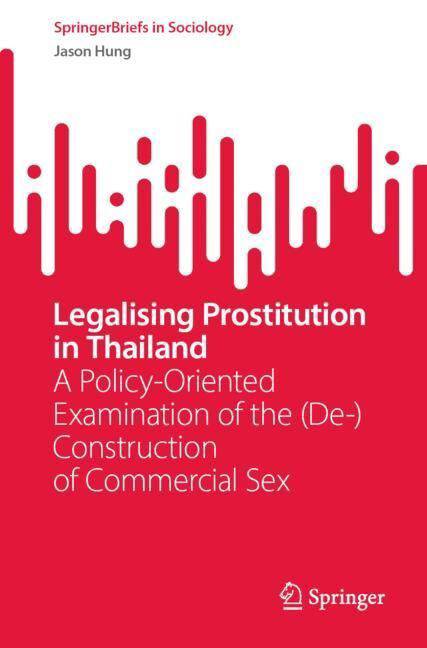
- Afhalen na 1 uur in een winkel met voorraad
- Gratis thuislevering in België vanaf € 30
- Ruim aanbod met 7 miljoen producten
- Afhalen na 1 uur in een winkel met voorraad
- Gratis thuislevering in België vanaf € 30
- Ruim aanbod met 7 miljoen producten
Legalising Prostitution in Thailand
A Policy-Oriented Examination of the (De-)Construction of Commercial Sex
Jason HungOmschrijving
This book problematises the socioeconomic and institutional construction of prostitution in Thai contexts, identifying the root causes that propel underprivileged, discriminated and deprived women and girls to enter the sex industry. The author considers Thailand's tolerance of prostitution and sex trafficking, despite criminalising prostitution since 1960. In doing so, they explain how criminalising prostitution does not lower the odds of women and girls engaging in commercial sex, but rather, legally marginalises them from receiving the necessary social and healthcare support. The book highlights that neither can Thailand pragmatically practice a zero-tolerance stance against prostitution - primarily due to severe police corruption and its heavy reliance on the sex tourism economy to support the national economic growth - nor is Thailand willing to fully crack down on the domestic sex industry. Engaging in an evaluation of how legalising and decriminalising prostitution, along with continuing to implement policies and interventions that alleviate the root causes of prostitution, can help Thailand build a more inclusive society and less-prostitution-reliant economy in the long term, the book provides a nuanced understanding of the relationships between society, inequality, governance, criminality, and policy in Southeast Asian contexts. It is relevant to students and researchers in sociology, socio-criminology, public policy, government and Southeast Asian studies.
Specificaties
Betrokkenen
- Auteur(s):
- Uitgeverij:
Inhoud
- Aantal bladzijden:
- 85
- Taal:
- Engels
- Reeks:
Eigenschappen
- Productcode (EAN):
- 9789819984473
- Verschijningsdatum:
- 24/12/2023
- Uitvoering:
- Paperback
- Formaat:
- Trade paperback (VS)
- Afmetingen:
- 156 mm x 234 mm
- Gewicht:
- 145 g

Alleen bij Standaard Boekhandel
Beoordelingen
We publiceren alleen reviews die voldoen aan de voorwaarden voor reviews. Bekijk onze voorwaarden voor reviews.











